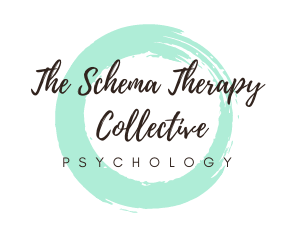Most people are aware of thoughts that cross their mind. These thoughts guide them, prompt them and even narrate their actions.
You might notice some of these thoughts are critical of you, and the things you do and think.
When this occurs, an inner critic mode is present.
In schema therapy, this voice is called a critic mode.
Critic modes are thought to have formed in childhood through absorbing critical messages from parent figures, teachers, coaches, bullying experiences, and other societal influences. It can also form as a result of not having your emotional needs met.
For example, children tend to see themselves as bad, troublesome, and too needy if their parents are unable to meet their normal emotional needs. To accept the reality that their parent is dysfunctional, unable to adequately care for them or is abusive is too frightening and is psychologically overwhelming for a child.
Belonging to a minority group that is put down, not accepted, or understood by the broader community you live in can also cause critic modes to form.
In some cases, children learn to criticise themselves first, because it then hurts less when they hear that criticism from a parent figure. Or in the case of inability to meet needs, by criticising themselves first, they protect themselves from the psychological overwhelm of their parent’s incapacity.
When people enter therapy, they often have a very strong critic mode that dominates their thinking. Some people even think their critic mode is very helpful and may confuse it with their Healthy Adult mode, because the critic is giving them instructions and guidance (albeit from a d critical perspective).
Although having a critic mode in the driver’s seat of your life isn’t good for anyone, not all critics are as nasty, debilitating, and detrimental to mental wellbeing as others.
In this post, I outline three common types of critic modes defined in schema therapy. It is possible to have one or all of these critic modes. The frequency and severity of critic modes vary between people.
The punitive critic
The punitive critic is, as its name suggests, a mode that punishes you. It tells you things like you are bad, unloveable, unworthy, disgusting, and other hurtful and cruel messages. If your inner critic calls you nasty names like dumb, stupid, idiot, and horrible swear words, it is likely you have a punitive critic mode. This kind of critic is damaging to mental health and needs urgent attention to reduce its impact on you. If you have a punitive critic mode you almost definitely have a defectiveness/shame schema.
The demanding critic
The demanding critic, is a critic that is constantly pushing for more from you. Nothing is good enough. If you are perfectionistic, you will have this type of critic mode. This critic mode pushes you to work harder, study more, achieve more, and be skinnier. It does not allow you to rest and celebrate your efforts. This critic mode believes it protects you from failure and criticism as well as helps you to belong. It is very common in people with unrelenting standards/hypercriticalness schema and self-sacrifice schema, however many other schemas can also co-ocur.
The guilt-inducing critic
This critic mode tends to be present in people who have been raised in families that are enmeshed and prioritise self-sacrifice. If you have this type of critic mode, you will find you feel guilty any time you don’t fulfill the expectations of other people. You may feel excessively guilty about letting others down and call yourself selfish if you even think about doing something that suits you. You will also find it hard to set healthy boundaries with people in your life and generally feel bad anytime you prioritise yourself.
In schema therapy, we work to reduce the frequency and severity of your critic mode and lessen the impact of its voice on your emotional well-being.
We help you to build and strengthen your Healthy Adult mode, which takes on the role of guiding you and setting limits, with kindness and fairness.
When do critic modes activate
Critic modes can activate in a range of situations.
Commonly it occurs when you try to do something that challenges your schemas.
For example if you have a self-sacrifice schema and you are thinking you would like to go out for dinner this weekend with friends but that will mean your partner will have to do the bedtime routine and you know your 3-year-old child prefers you, you might find your guilt-inducing critic says “Don’t be selfish. It’s not fair that your 3-year-old will be upset, they are only little.”
In comparison, the Healthy Adult Mode would say “It’s understandable that you like your child to feel comfortable. You are a caring parent. You rarely get a night out and you have needs for socialising. You know that your partner is perfectly able to put your child to bed, they have done it before. It is only one night and it will just take a little longer than normal. It’s ok for you to have some time out from the bedtime routine.”
Noticing when your critic activates can be a first step in moving towards lessening its negative impact on you.
Reference:


